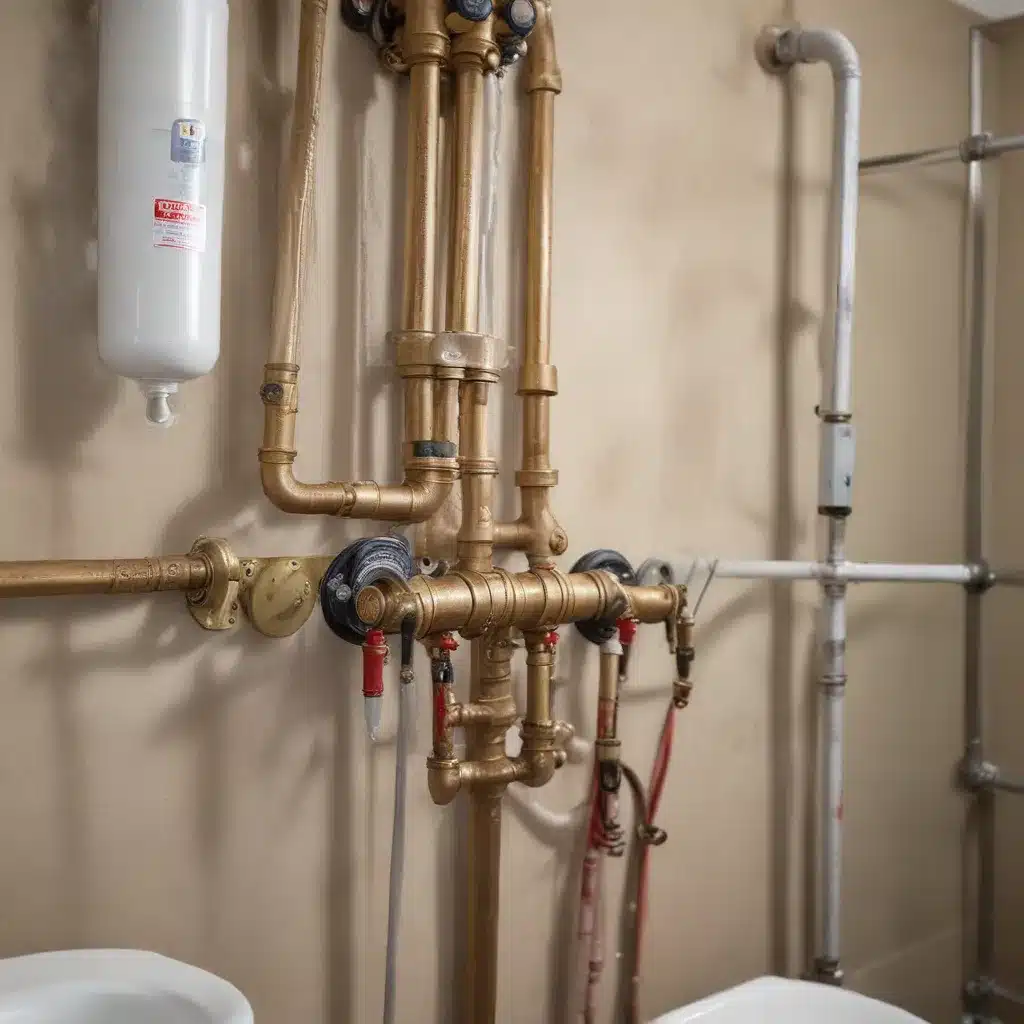
Understanding the Importance of Preparedness
As a seasoned expert in plumbing and heating services, I understand the critical role that preparedness plays in managing emergencies in multifamily buildings. In these complex environments, coordinating an effective response can make the difference between a minor disruption and a major disaster.
Multifamily buildings, such as apartment complexes and condominiums, face unique challenges when it comes to plumbing and heating emergencies. With shared systems, multiple units, and varying tenant needs, a single issue can quickly escalate and impact the entire building. That’s why it’s essential for property managers, maintenance staff, and plumbing professionals to have a well-coordinated emergency response plan in place.
Preparedness begins with understanding your local hazards. A thorough risk assessment is the foundation for any effective emergency management strategy. By identifying the most likely plumbing and heating-related threats in your area, you can develop tailored procedures to mitigate the impact and ensure a seamless response.
Establishing Emergency Management Protocols
At the core of coordinating plumbing emergency response in multifamily buildings is a robust emergency management plan. This comprehensive document should outline the roles, responsibilities, and actions to be taken by all key stakeholders, including property managers, maintenance crews, and external service providers.
One of the critical components of an effective emergency management plan is clear communication protocols. In the event of a plumbing or heating crisis, rapid and reliable information sharing is essential. Establish a designated emergency hotline, email distribution lists, and emergency alert systems to ensure that all affected parties are promptly notified and have access to the latest updates.
Regular training and drills are also crucial for maintaining preparedness. Ensure that all staff, from the front desk to the maintenance team, are well-versed in the emergency response procedures. Conduct periodic simulations to test the plan’s effectiveness and identify areas for improvement.
Strengthening Partnerships and Coordination
Effective plumbing emergency response in multifamily buildings requires a collaborative effort among various stakeholders. Building strong partnerships with local authorities, utility providers, and specialized plumbing and heating contractors can significantly enhance your ability to manage and resolve crises.
Engage with your local Office of Emergency Management to stay informed about emerging threats, access emergency planning resources, and coordinate response efforts. Develop relationships with nearby fire departments, police stations, and utility companies to ensure seamless coordination during an incident.
Additionally, cultivate a network of trusted plumbing and heating service providers who can respond quickly and provide reliable, high-quality repairs. Maintain up-to-date contact information, pre-negotiated service agreements, and a clear understanding of their capabilities to ensure a swift and efficient response.
Prioritizing Preventive Maintenance
While emergency preparedness is essential, proactive preventive maintenance can go a long way in mitigating the risk of plumbing and heating-related crises in multifamily buildings. By implementing a comprehensive maintenance program, you can identify and address potential issues before they escalate into emergencies.
Regularly inspect and maintain the building’s plumbing and heating systems, including pipes, fixtures, boilers, and furnaces. Develop a detailed maintenance schedule and ensure that all necessary repairs are addressed promptly. This not only helps prevent costly emergencies but also contributes to improved energy efficiency and tenant comfort.
Encourage tenants to be proactive in reporting any signs of trouble, such as leaks, unusual noises, or fluctuations in water pressure or temperature. Provide them with guidelines on how to respond to minor plumbing issues and when to contact the maintenance team for assistance.
Ensuring Tenant Safety and Comfort
In the event of a plumbing or heating emergency, the top priority must be the safety and well-being of the building’s tenants. Develop clear protocols for evacuating affected areas, providing temporary housing or alternative accommodations, and ensuring access to essential services.
Maintain a comprehensive inventory of emergency supplies, such as portable generators, temporary heating or cooling units, and emergency plumbing equipment. Ensure that these resources are readily accessible and that staff are trained in their proper use.
Additionally, consider the long-term impact on tenant comfort and satisfaction. Develop a plan for restoring services as quickly as possible, minimizing disruptions to daily life. Communicate regularly with tenants, addressing their concerns and keeping them informed of the progress in resolving the crisis.
Embracing Technology and Innovation
In the ever-evolving world of plumbing and heating services, embracing technology and innovation can significantly enhance your emergency response capabilities. Explore the use of smart building systems, remote monitoring, and automated alerts to detect and respond to issues more efficiently.
Invest in digital communication platforms that allow for seamless collaboration and information sharing among your maintenance team, service providers, and tenants. Utilize mobile apps, cloud-based work order management systems, and real-time status updates to streamline emergency response efforts.
Furthermore, consider the integration of smart plumbing and heating technologies, such as leak detection sensors and energy-efficient appliances. These advancements can not only prevent emergencies but also contribute to long-term cost savings and environmental sustainability.
Conclusion
Coordinating plumbing emergency response in multifamily buildings requires a comprehensive approach that combines preparedness, partnership, preventive maintenance, and a commitment to tenant safety and comfort. By developing a robust emergency management plan, fostering collaborative relationships, and embracing innovative technologies, property managers and plumbing professionals can ensure that their buildings are resilient, responsive, and well-equipped to handle any plumbing or heating-related crisis.
As a seasoned expert in the field, I encourage you to review your current emergency management protocols, identify areas for improvement, and take proactive steps to enhance your multifamily building’s overall plumbing and heating resilience. By doing so, you can safeguard your tenants, protect your property, and demonstrate your commitment to providing exceptional service and support.


